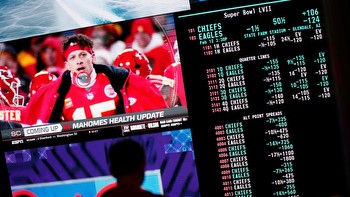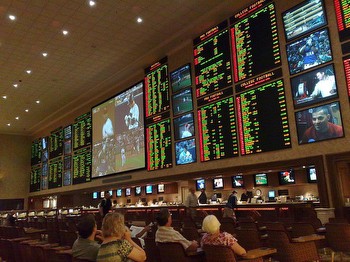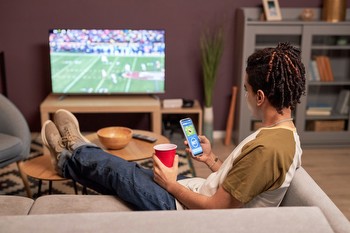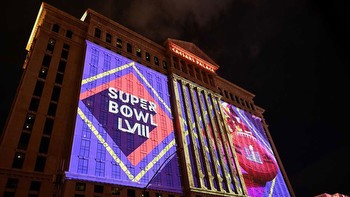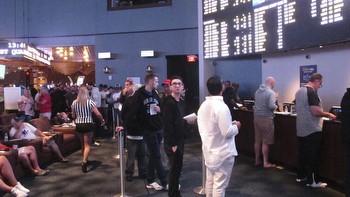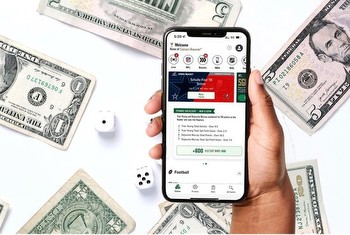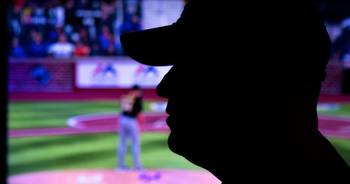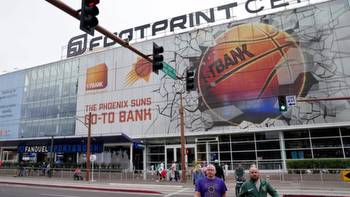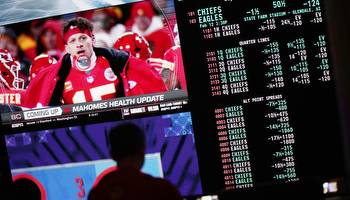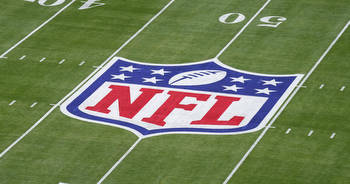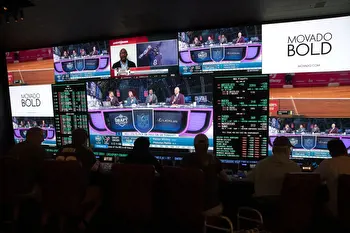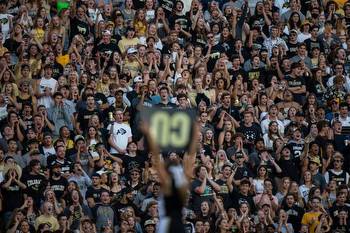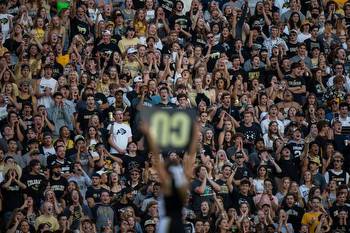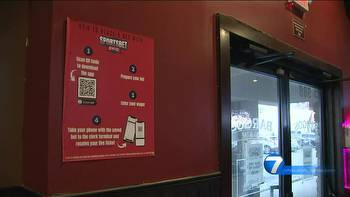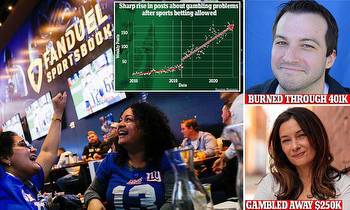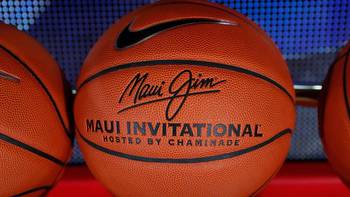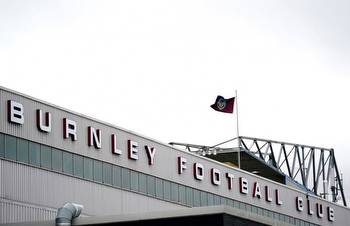Leagues should not promote gambling

When I watched the American Football Conference Championship between the Kansas City Chiefs and Baltimore Ravens, the broadcast kept cutting to one thing. It felt like I saw it after every catch, score and commercial break.
I’m not talking about Taylor Swift. I’m talking about the promotion of gambling. Talks of over-unders, parlays and daily fantasy sports were displayed multiple times throughout the game.
The National Football League, along with other professional sports leagues, have gone too far in their promotion of these gambling sites. These advertisements are not only tedious but dangerous. Professional sports leagues should not be promoting gambling on the sports they’re hosting.
This sports gambling explosion started when the U.S. Supreme Court struck down a federal law prohibiting sports gambling in May 2018. PBS reported that Americans gambled over $220 billion in the five years after that 6-3 decision.
Before that decision, states were not allowed to authorize sports gambling under the Professional and Amateur Sports Protection Act, a 1992 law sponsored by Bill Bradley, a New Jersey senator and former professional basketball player. Bradley said the law was needed to safeguard the integrity of sports. SCOTUS disagreed.
Now sports betting has become so normalized that ads for it are shown multiple times a game.
A 2021 NBC report stated the NFL allows six gambling commercials per game: one per quarter, one during pregame and one at halftime. In recent years, networks have taken it a step further, going so far as to promote specific bets during games.
Sports gambling is growing exponentially in America. An American Gaming Association poll estimated that 46 million Americans bet on the NFL in 2022, and that 73.5 million planned to wager on football in the 2023 season.
Now the Super Bowl will be held in Las Vegas, the gambling capital of the world. The NFL released a statement Jan. 30 announcing that three sports gambling ads will be shown before and during the Super Bowl on Feb. 11.
Thirty-eight states and the District of Columbia offer digital or in-person sportsbooks — places where people can place bets on games. The number of people betting on these games is increasing. This presents a unique problem to sports fans around the country.
Compulsive gambling has always been an issue. At casinos across America, 1-800-GAMBLER signs glare across ATM screens to remind people that help is available, yet we’re making it easier than ever for people to become addicted to betting.
Even industry insiders know it’s unsustainable. In 2021, AGA President Bill Miller told the SBC Summit North America, a major international sports betting conference, that the current level of sports betting ads was an “unsustainable arms race.”
Leagues in other countries are starting to realize just how big a problem sports gambling can be. The Premier League, England’s top soccer league, “bombarded” fans with over 11,000 sports gambling messages during its opening weekend, The Guardian reported in September.
The Premier League has pledged to start removing gambling logos from their players’ jerseys starting in the 2025-2026 season, though these logos represent just seven percent of the $82 million the league receives per year from gambling groups, Sports Business Journal reports.
A 7% decrease may not feel like much, but it is a step in the right direction that we should encourage all other leagues to follow.
Moral quandaries aside, these partnerships can also erode support and trust from fans and can create unrealistic rules for professional athletes. NFL players can be suspended for betting on sports while in NFL facilities.
But players won’t be suspended if they bet from home.
Unless they bet on NFL games.
Players won’t be allowed to gamble in Vegas ahead of the Super Bowl, Jeff Miller – the NFL executive vice president of communications, public affairs and policy – told reporters on a conference call.
“The rules are no different for the participating teams’ players and other personnel as they would be for any other game: when on business, there is no gambling, whether it be sports gambling or otherwise,” Miller said on the call.
So the NFL acknowledges gambling can be harmful to their product and will punish their million-dollar-salary employees for wagering, but will run ads encouraging everyday Americans to get in the game and place a bet. It seems it would be easier to just avoid the industry altogether and discourage gambling on the sport.
The National Basketball Association announced in 2021 that DraftKings and Fanduel were the league’s co-official sports betting partners. In that release, the NBA said the collaboration will support its “ongoing commitment to responsible gambling.”
Partnerships like this can create problems like what we saw last December.
On Dec. 22, 2023, ESPN showed a short video of the Golden State Warriors bench reacting to a late 3-pointer in their game against the Washington Wizards. The basket cut the Warriors’ lead from 14 to 11. It shouldn’t have mattered. The Warriors still won.
Except the line was Warriors -11.5, meaning the sportsbooks predicted Golden State to win by at least 11.5 points. As the final shot went through, Warriors players reacted on the bench and ESPN’s caption that night read “Warriors bench loses it after Wizards’ late 3 covers spread.”
If that caption is true, it shows players are actively following spreads, so they’re emotionally invested in gambling. This is potentially a major problem, especially for a league that’s been bitten by gambling scandals in the past.
Tim Donaghy’s infamous refereeing career came to an end in 2007 after it was found he was using information he obtained as an official to place bets on basketball games for over four years.
It just doesn’t make sense. These leagues are creating Pandora’s boxes for themselves by signing these brand deals and they’re promoting a product that’s detrimental to people’s financial and mental health.
Although these leagues hope to engage more audience members in betting, the spread of gambling can create an environment irresistible even to league insiders, so gambling ads end up harming the leagues who were hoping to profit from them.
These leagues should take a stance for what’s right and leave the gambling to the casinos. We don’t need more corporations helping people get addicted to gambling.
